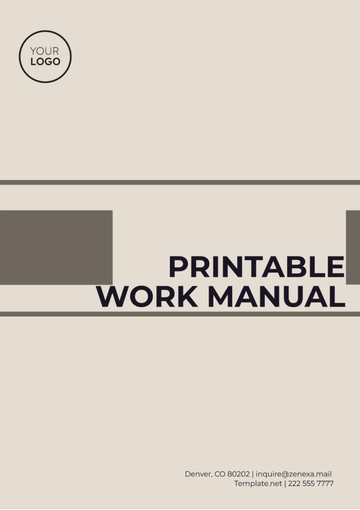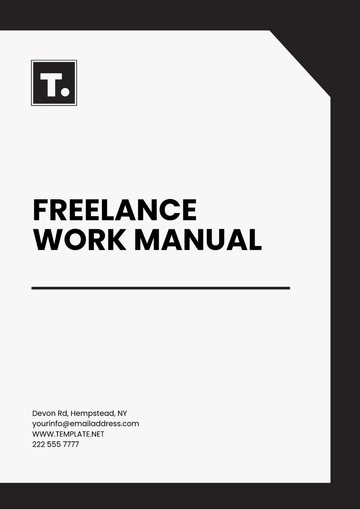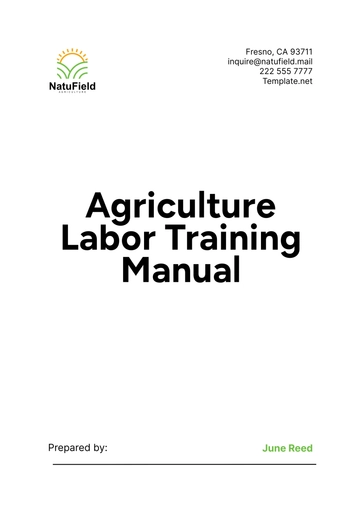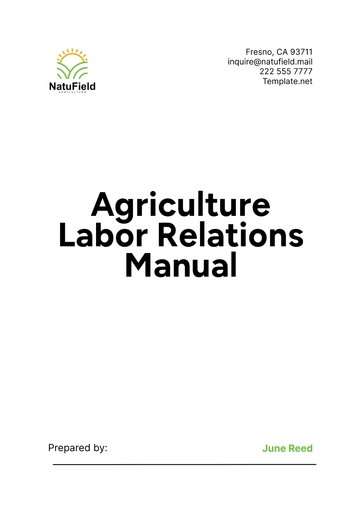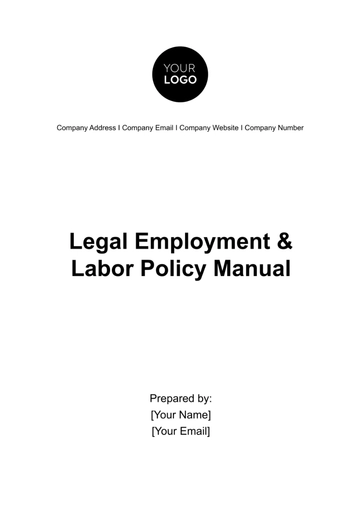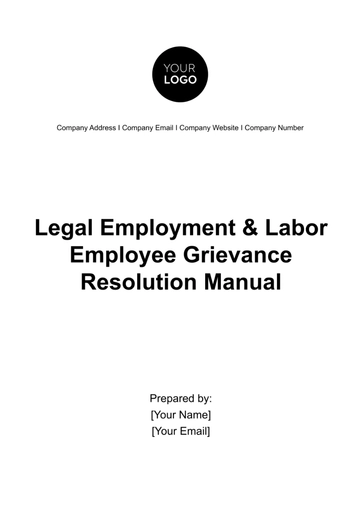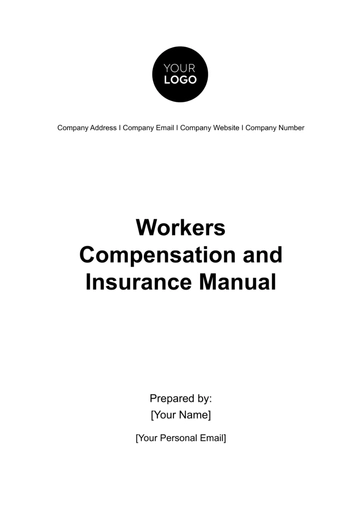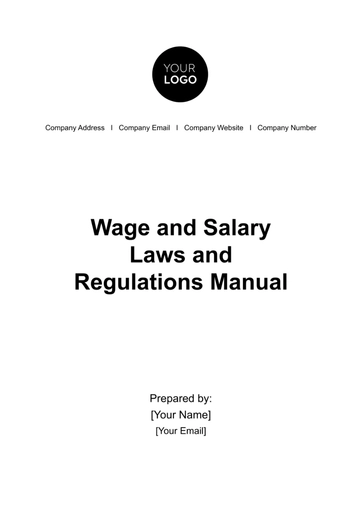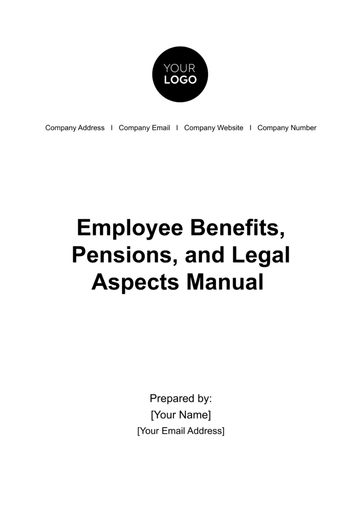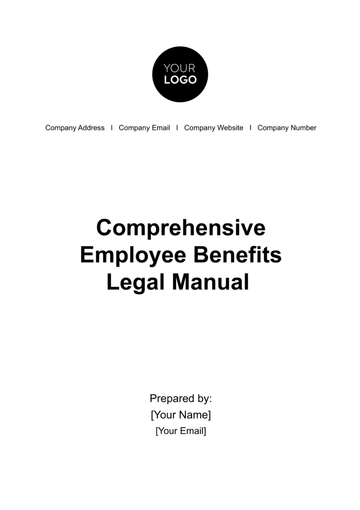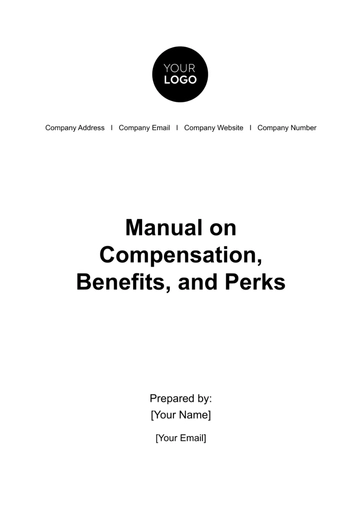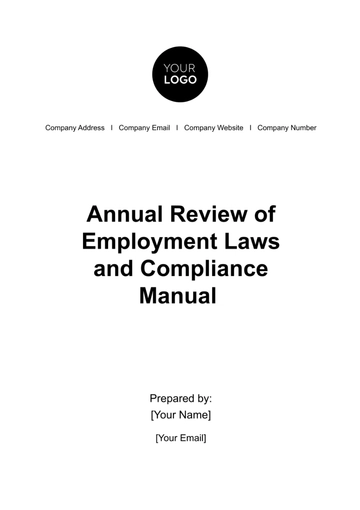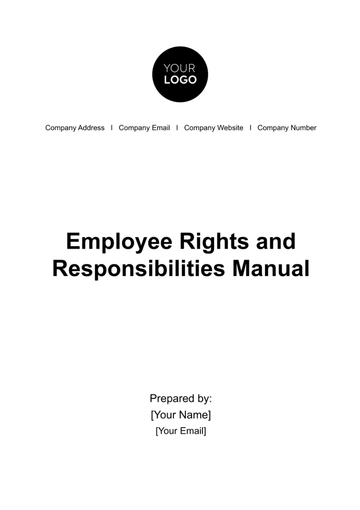Freelance Work Manual
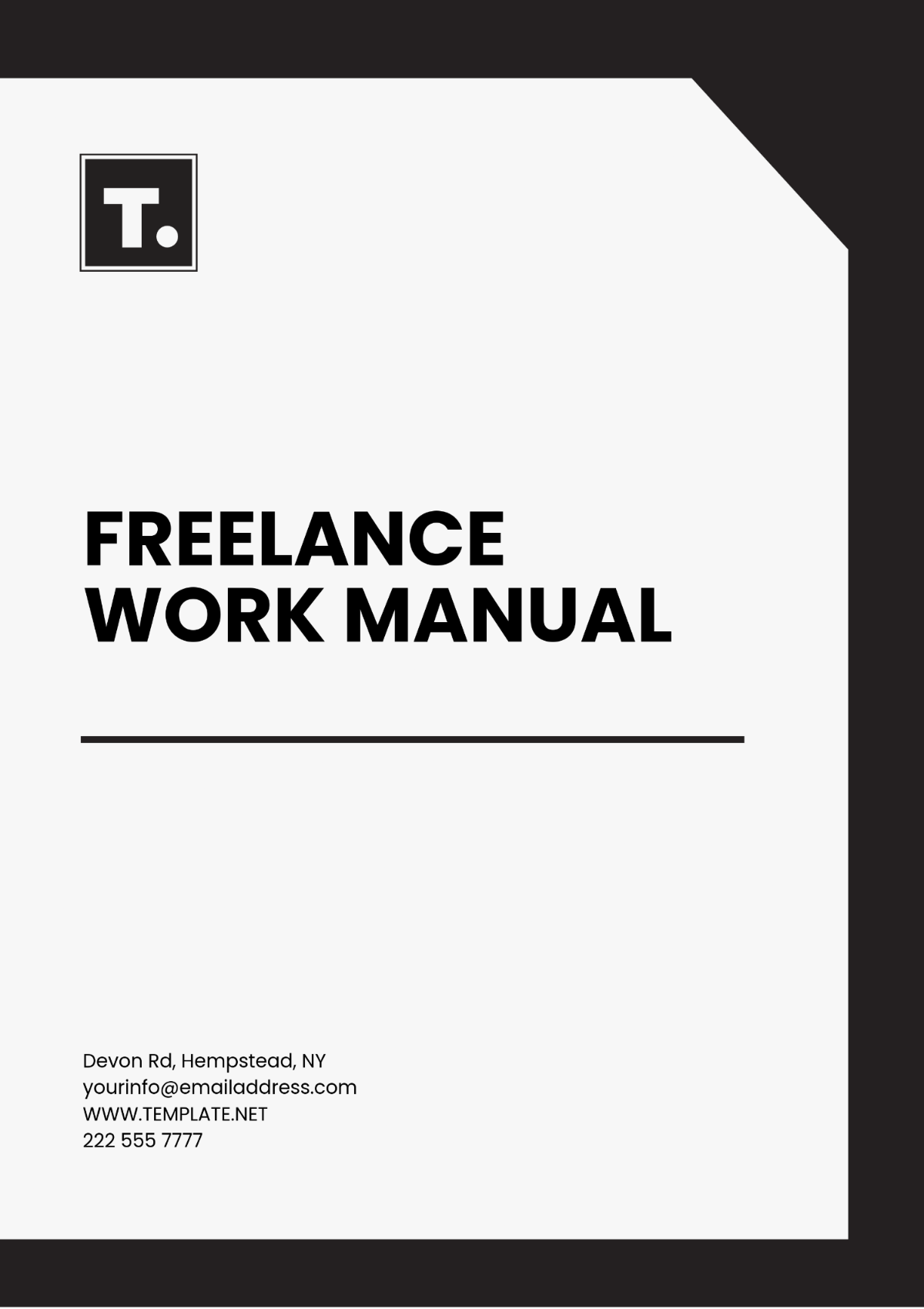
Prepared by: [YOUR NAME]
I. Introduction
This manual serves as a comprehensive guide for individuals engaging in freelance work. It aims to provide meaningful insights, tips, and best practices to help freelancers thrive in their professional endeavors.
II. Getting Started
A. Understanding Freelance Work
Freelance work involves offering services on a project or contract basis without long-term commitment to any employer. Freelancers are considered self-employed and are responsible for managing their workload, clients, and finances.
B. Setting Up Your Freelance Business
Identify your skills and services
Register your business (if required)
Create a professional website or portfolio
Establish a pricing structure
C. Essential Tools and Resources
Tool | Description |
|---|---|
Project Management Software | Helps manage tasks and deadlines |
Invoicing Software | Aids in billing clients and managing finances |
Time Tracking Tools | Tracks billable hours and productivity |
Communication Platforms | Facilitates client interactions |
III. Finding Clients
A. Networking
Attend industry events
Join professional groups on social media
Leverage personal connections and referrals
B. Online Platforms
Upwork
Freelancer
Fiverr
LinkedIn
C. Marketing Your Services
Develop a marketing strategy to promote your services. Use social media, content marketing, and SEO techniques to increase your online visibility and attract potential clients.
IV. Managing Projects
A. Client Communication
Set clear expectations
Use contracts to outline project scope and deliverables
Maintain regular updates with clients
B. Time Management
Prioritize tasks
Set achievable deadlines
Avoid overcommitment
V. Financial Management
A. Setting Rates
Base your rates on your skills, experience, and market demand. Consider different pricing models: hourly, project-based, or retainer fees.
B. Invoicing
Use professional invoicing software
Include detailed descriptions of services rendered
Set clear payment terms and due dates
C. Tax Obligations
As a freelancer, you are responsible for paying your own taxes. Keep accurate records of your income and expenses. Consider consulting a tax professional to ensure compliance with tax regulations.
VI. Professional Development
A. Continuing Education
Attend workshops and webinars
Pursue certifications relevant to your field
Stay updated with industry trends and technologies
B. Building a Personal Brand
Create a unique brand identity that reflects your expertise and values. Use consistent branding across all your professional platforms to build credibility and recognition.
VII. Conclusion
Freelancing offers flexibility and autonomy but requires discipline and effective management. By following the guidelines outlined in this manual, you can enhance your freelance career and achieve sustainable success.
- 100% Customizable, free editor
- Access 1 Million+ Templates, photo’s & graphics
- Download or share as a template
- Click and replace photos, graphics, text, backgrounds
- Resize, crop, AI write & more
- Access advanced editor
Template.net’s Freelance Work Manual Template offers a structured approach to managing freelance projects. Customizable and editable in our Ai Editor Tool, this template helps freelancers outline work processes, client agreements, deadlines, and payment terms, providing clarity and professionalism in managing independent work. What are you waiting for, download it today!
